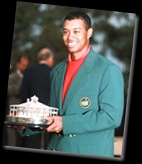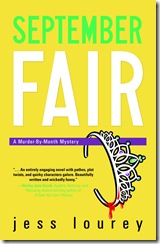
Today's papers announced that the government, on behalf of pig farmers everywhere, is lobbying to get the medical community and the media to find a new name for swine flu, worried that people will stop eating pork in the midst of this emerging pandemic. Forget for a moment that the same papers and doctors have made it clear that you can't get the virus from eating anything — this isn't a disease like trichinosis — but only from another person (or possibly an animal) already infected with this particular strain of the flu.
I understand the concern, but they're a bit late, since the pig is already out of the poke, and 'swine flu' is already part of our vernacular. This flu is genuinely scary, but what we're talking about is really a question of semantics.
People don't eat swine anyway, they eat pork. Or ham. Farmers raise pigs and herd swine so we can eat bacon. The meaning of the terms might be variations on a theme, but the power of the words and the net impression they leave are entirely different.
As a writer I'm fascinated by words but also acutely aware of their power, and lately I've noticed an acceleration toward something predicted by George Orwell, practiced for years by the government, and perfected by corporations everywhere. In the novel 1984, Newspeak was double-talk, carefully chosen words which, when used in combination, meant nothing at all. Platitudes broadcast over the airwaves to create an illusion of stability. In a word, bullshit.
Homeland Security was a blanket term used to cover anything related to the post-9/11 world, but spending bills authorized under homeland security covered things like air conditioned garbage trucks for Newark, New Jersey; sanitation workers in the District of Columbia attending Dale Carnegie classes; and ferries to shuttle people to Martha's Vineyard. No kidding. Not exactly mission-critical initiatives in the war on terror.
But I can't call it the war on terror anymore, because now the government wants to refer to the wars in Iraq and Afghanistan as "overseas contingency operations." And apparently acts of terrorism are now "man-caused disasters."
Really? Because I'm not buying it. My office is a man-caused disaster — just look at my desk — but a car bomb is another thing entirely, something terrifying and evil, no matter whose side you're on. I get that the official goal is to take the fear out of the rhetoric, but in its place we're left with morally ambiguous phrases that sound like they were generated in a boardroom at an accounting firm or the marketing department at Coke.
Because didn't major corporations take this idea and run with it during the nineties? I remember sitting in meetings and being told by clients that they would no longer be discussing any problems or market losses, but instead would refer to their challenges and opportunities. This was announced with a zeal that suggested the people rolling out the new company-approved jargon actually believed that calling a problem by another name turned it into less of a problem, or that the people working in the local markets would suddenly feel better about all the opportunities that were being created by a new competitor kicking their ass.
This has happened under Republicans and Democrats, at companies big and small. And the trend continues, which raises a few interesting questions.
Do the powers that be really think we're that stupid, or is it our own damn fault because we've become too passive or too afraid to call bullshit on all the political correctness that no one really bought into in the first place? Have we forgotten how to talk plainly, look someone in the eye, and tell them how it is? Is this why The Daily Show and The Family Guy are more popular than ever, because those shows express an unspoken desire to cut through it all?
I don't have the answers, but maybe that's what I'm feeling, a frustration that we're all being bullshitted all the time. By the media, the companies we work for, and by politicians on both sides of the aisle.
It's a feeling that I would have expressed sooner, if only the words hadn't been taken away from me.








 By
By 









